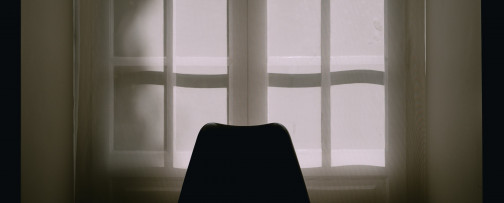How much is it going to cost to honor your loved one with a memorable goodbye? You only get one chance to celebrate this special person’s life, but how should you budget for funeral expenses, whether the person who has died had set money aside or not?
If you are paying for a funeral in the United States, you can expect to spend thousands of dollars on funeral costs – depending on the specific services you’d like to include in the funeral package. A life insurance policy can often cover funeral cost, but family members might need to come up with the cash before the insurance reimbursement comes through.
A good funeral home not only supports you in planning a funeral, but they offer transparency in the cost of services and funeral expenses. Look at the average funeral cost in 2021, set a budget, then prioritize the services that best align with your personal preferences and goals.
How Much Does a Funeral Cost?
The average funeral cost depends on the type of funeral package you choose (burial or cremation), as well as a variety of other factors that can influence the price: location, services, funeral products, transportation, venue, and more.
The latest numbers from the National Funeral Directors Association (NFDA) show that most families pay an average of $7,360 for the funeral, or $8,755 if the cemetery requires a vault. Remember that these average funeral costs don’t include outside services, such as the burial plot, transportation, or flowers. So, the overall average funeral costs can quickly run between $10,000 - $20,000 in total.
How much does a cremation cost?
Compare the cost of cremation vs burial, and you’ll find that the average cost of cremation is slightly lower than traditional burial: $6,260. If you need a low-cost option, direct cremation can cost anywhere from just under $1,000 and up. There's also Aquamation, a liquid-based type of cremation that is becoming more popular.
Read on to see a detailed breakdown of funeral costs.
Average Funeral Cost Breakdown: Categories and Services
Planning a funeral is much like looking at a menu of options. Your funeral director will generally provide package options that include the most popular services.
You can choose a funeral package that matches your preferences, or select an a la carte approach that allows you to hand-pick the specific services you desire.
Every funeral should be as unique as the person being honored. So, your funeral director will encourage you to be creative in designing services that fit your family traditions and customs.
Here’s an overview of some of the costs that will influence the price you pay for funeral or cremation services:
- Casket: How much is a casket? Prices vary depending on the type of casket you desire. A cremation casket for the cremation process can be as low as $1,000, but you can expect to pay anywhere from $2,400 to $10,000 for a burial casket, or even more for a more luxurious option. Less expensive yet still lovely casket materials include fiberglass, fiberboard, metal, or plastic. Eco-friendly caskets can also be affordable and beautiful. For caskets made of bronze, mahogany, copper and other higher end materials, or for customized caskets, bespoke prices will reflect the details.
- Vault: Many cemeteries require each casket to be placed inside an enclosure, known as a vault. This extra layer of burial protection is often made of cement and will cost around $1,400.
- Urn: What type of container would you like to use to store and display your loved one's cremated ashes? Urns tend to be quite a bit cheaper compared to caskets, and they really do vary in price. You might budget $300 for a simple memorial urn, but there is a wide variety of options, styles and prices depending upon materials and details. Note that your crematory provider must include a basic plastic container as part of the cremation service. You can always take your time choosing your preferred urn and have the ashes transferred by your funeral home at a later time when you're ready.
- Cremation: The cremation fee will be lower if you work with a direct cremation provider, such as a funeral home with an on-site crematory. Since most funeral homes don’t own crematoriums, it’s common to outsource the cremation to another provider. This direct cremation cost can start at around $500-1000, often with an additional fee for the funeral home coordination.
- Funeral Home: The funeral director and support staff need to be paid for their time, so a funeral service fee is often added to the cost. This funeral expense may run more than $2,000 and covers all administrative support before, during, and after the funeral services.
- Ceremony: Other funeral home expenses might include several hundred dollars and up to use the funeral home chapel for a memorial or funeral, plus an extra fee for staffing support during the event depending upon the complexity of your service and the number of people attending. The venue cost can be higher or lower, depending on where you want to hold the services. For example, some churches offer free use of the chapel for congregation members. Other times, families pay hundreds or even thousands of dollars to book a local event venue.
- Embalming: It’s not always necessary to pay for preservation services, especially if you're interested in a more eco-friendly option. However, if your loved one is transferred interstate, or if you want to hold open-casket services, then you might expect to pay between $700 - $800 for embalming.
- Transportation: The funeral director will take care of the transport to the funeral home after your loved one has died. Transportation may be included in the basic funeral package, or you might be charged a few hundred dollars. You’ll likely pay another transportation fee for the hearse that takes the casket from the funeral venue to the cemetery. Some funeral homes also provide transportation for the family, such as a limousine for around $150.
- Viewing Preparation: You want your loved one to look their best during an open-casket viewing. Cosmetic services often start around $250 and include professional styling for makeup, hair, and clothing that you provide.
- Other Burial Costs: The burial plot price depends on the cemetery you choose and even the location within the cemetery, with costs often running between $1,000 - $4,000. Burial plots in big cities are in higher demand, so they usually cost more than small-town burial plots. A simple headstone can be as cheap as $300 or as pricey as $5,000 - $10,000 for an upright or elaborate monument design.
- Flowers: A full floral package for a funeral can range widely, as with any important event. It all comes down to which florist you choose and what style and quantity of arrangements you want to include. Some sources quote $200 - $800 as a good number to budget for funeral service flowers, but this really depends on your vision. A common tradition is to adorn the casket with flowers – known as a casket spray. The price of these flowers will depend on the specific blooms you choose but often run between $150 - $550. If you blanket the casket in rare orchids or peonies, for example, your budget may run into the thousands. Wreaths, bouquets, and standalone sprays can be $50 - $250 each on the more modest end, but can run into the high hundreds or even thousands of dollars for more elaborate designs or premium blossoms. If you'll want boutonnieres (lapel flowers), you might budget anywhere between $10-40 each. If cost is a factor, make sure to share your priorities with the funeral director or florist directly so they can help you create a beautiful design that suits your needs. There are also some tribute collections available online that are attractive and affordable.
This funeral cost breakdown list isn’t comprehensive and fees range widely depending upon your location and the individual businesses themselves – your funeral director will tell you about any other funeral expenses that need to be paid. For example, you might have additional fees for pamphlet printing, obituary publishing, memorial jewelry, food, drinks, reception services, and more. It’s up to you to decide the type of event you’d like to share with your friends and family. There are also a lot of other terms that may be confusing as you're planning for funeral expenses, so we've put together a glossary to help explain them.
Ways to Save on Funeral Costs
You can’t put a price tag on the memories that come through honoring the life of your loved one. Most families want to prioritize the quality of services instead of penny-pinching every aspect of funeral planning. If your budget is tight, then talk to your funeral director about more economical options. You can find ways to reduce expenses without cutting out the most critical services.
For example, you might choose a cheaper casket, so you have a little extra to splurge on food for a luncheon or reception. Or, maybe plan a virtual funeral through live stream services to save money on the event, which frees up a bit of cash for a nicer headstone.
Every family has unique preferences, which is why there isn’t a one-size-fits-all solution when it comes to funeral planning. You pick your priorities and make sure to work with a knowledgeable funeral planning team who can create something special within the constraints of your budget. Do note that funeral providers are required to make their pricing transparent, and to show you written price lists while discussing arrangements with you.
Recommended Products
- Funeral Guest Book & Memory Card Set — Elegant guest book with matching memory cards for funeral and memorial services.
- COLIBROX Cremation Funnel Kit — Stainless steel funnel kit designed for carefully transferring ashes into urn jewelry and keepsakes.
- Eco Water Urn — Biodegradable water-soluble urn for meaningful ash-scattering ceremonies.


-banner.png)





